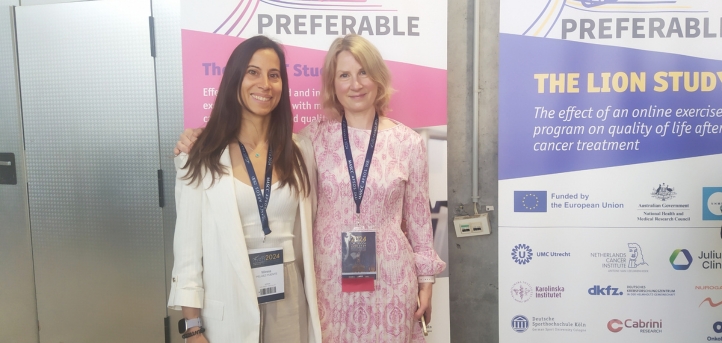Dr. Mireia Peláez, professor of the degree in Sciences of Physical Activity and Sport (CAFYD) of the European University of the Atlantic (UNEATLANTICO), attends the Annual Congress MASCC/AFSOS/ISOO 2024, invited by the PREFERABLE consortium, which Dr. Peláez was part of during her time in Onkologikoa, Donostia.
At the congress held in Lille, France, the final results of a European project funded by the H2020 program, which has been developed over the last five and a half years with the participation of Dr. Peláez, among other researchers, were presented.
The study, which included 350 participants with metastatic breast cancer from eight centers located in five European countries and Australia, has been recognized as a milestone in oncology research. This achievement is not only due to the specificity of the target population (patients with metastatic cancer), but also to the sample size and its diverse demographic representation. Furthermore, the results of this study have been published in the prestigious journal Nature Medicine under the title “Supervised, structured and individualized exercise in metastatic breast cancer: a randomized controlled trial”, which underlines the relevance and quality of the findings.
The most important results of the study reveal that a physical exercise program not only reduces fatigue and improves patients’ quality of life, but also increases physical function, decreases pain and dyspnea, and improves sexual health. These benefits were observed in both individual workouts and in groups of four, demonstrating that the program is cost-effective in both modalities.
Furthermore, this study underscores the importance of incorporating physical training into clinical practice for patients with metastatic cancer.
The presentation in Lille not only allowed these important findings to be shared with the international scientific community, but also opened the door to future collaborations and studies in the field of physical exercise and cancer.


